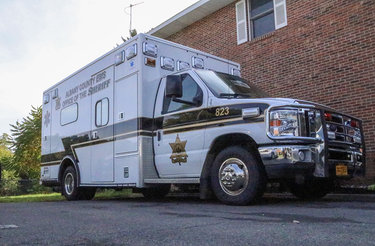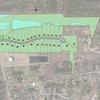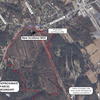New Scotland adopts $8.5M budget for next year
NEW SCOTLAND — At $8.46 million, New Scotland’s adopted budget for 2025 is up 4.92 percent over this year’s spending plan.
For next year, the town-wide property tax will go from about $1.50 per $1,000 of assessed value to approximately $1.55 per $1,000, a year-over-year increase of 3.27 percent. For a home valued at $300,000, Supervisor Doug LaGrange stated at an October budget workshop, the increase will add another $14.70 to the owner’s tax bills.
The tax increase is below the state-set limit, which is not, as some often think, a hard 2-percent cap. The formula to calculate a municipality’s cap is tied to inflation and takes into account a dozen different variables when determining the increase limit.
The total town levy for 2025 — which includes about $1.67 million from the town-wide tax and another $1.45 million from taxes on benefit districts like fire, ambulance, emergency medical services, water, light, and sewer — is up about 4 percent from this year.
The growth is an indication that New Scotland’s tax base has increased.
Between 2010 and 2023, the number of residential properties on the town’s assessment rolls increase 10.85 percent from 3,151 to 3,493, nearly all of them single-family homes, which went from 2,648 to 2,979. Over the same period, the town’s population grew by about 5.2 percent, from 8,481 residents to 9,104.
While the additional homes have been good for town revenue, during an October workshop, LaGrange sought to add context to the past couple of budget seasons.
He read from an earlier budget message that said, “The 2024 Budget was designed, through Board action, to reverse the rapid depletion of the A Fund reserves.”
New Scotland has four main funds:
— The general fund town-wide (Fund A), which is up from $2,461,500 this year to $2,542,400 next year;
— The townwide highway fund (DA) will increase from $629,245 to $673,150;
— The general fund for the town outside the village (Fund B) for 2025 has an appropriation of $1,223,200, an increase from this year’s allocation of $1,054,600;
— The highway fund for the town outside the village (DB) is going from $1,054,600 to $1,223,200.
While all appropriations for next year are going up, the amount of rainy-day funds needed to close the revenue gap, $653,400, is down from this year, which was $695,000.
The town is looking at adding to its fund balances next year as once-thought outflows have reversed.
Revenues
With anticipated total sales tax revenue of over $2.9 million next year, the town now estimates it will add $182,000 to its A Fund reserve rather than draining the account of $288,000. While the B Fund will keep more of its rainy-day money than first thought as the town anticipates using 75,900 fewer dollars than its initial estimate of $443,000.
Before this year, about 70 percent of A Fund revenue came from property taxes, with a significant 10 percent coming from mortgage-recording taxes.
In Albany County, residents pay a recording tax of $1.25 per $100 of mortgage. The local municipality receives 25 cents, as does the county, in addition to the Capital District Transportation Authority, and 50 cents is returned to the state, which in turn sends some of that money back to the county while keeping some to help fund the Mortgage Insurance Agency.
Approximately 20 months after COVID-19 first shut down the world, home prices in Albany County spiked 17.7 percent, going from an average $225,000 in March 2020 to $264,900 in October 2021. The median price of an existing home sold in the United States at the time was nearly $354,000, up about 13 percent from the same time in 2020.
But in the seven municipalities of The Enterprise’s coverage area — Altamont, Berne, Guilderland, Knox, New Scotland, Rensselaerville, Voorheesville, and Westerlo — the jump in the the median property sale price was even more stark, over 33 percent, from $239,500 in March 2020 to $320,200 in November 2021.
The increase in home prices meant bigger mortgages and more revenue for municipal coffers.
For 2021, New Scotland estimated it would take in $235,000 in mortgage-recording taxes — halfway through the year, it was already at $216,000. It would end up taking in $434,000 in 2021.
The following year, the town planned on $265,000 from recording taxes; it ended up with $348,800 in 2022. In subsequent years, revenue would only fall fast and hard.
In 2023, the town took in $265,000; for 2024, the town’s revised estimate shows it taking in $228,000 from mortgage taxes, up from $200,000; while next year, New Scotland anticipates $200,000 in mortgage revenue.
To make up for the mortgage revenue shortfall, the town decided last year to allocate the county sales tax across all funds, previously the B Fund had been the recipient of all that revenue. New Scotland in 2025 is appropriating that revenue across its four main funds: about $341,000 to A Fund; $657,000 to DA; $859,000 to B; and about $1.07 million to DB.
LaGrange in October noted that, by reallocating sales tax revenue to each of the town’s four main pots of money, “Our actions have started” to reverse the sucking sound coming out of the A Fund, “but 2025 is presenting many more challenges.”
Rising costs
“The majority of costs are rising,” LaGrange said.
The town’s contract with Robert Wright Disposal for pickup services is up 20 percent for next year, from $593,000 to $712,800, and up over 38 percent since 2023.
Health-insurance costs are increasing 13.7 percent year-over-year while some retiree healthcare, Medicare Advantage, is spiking 34 percent.
Like other local municipalities, New Scotland is dealing with increased costs for lifesaving services.
Berne initially was told it needed to pony up $264,000 for emergency services from the Albany County Sheriff’s Office in 2025 — up from $200,000 this year. The cost is now looking more like $200,000 for 2025.
Over the years, the sheriff’s office has presented municipalities with high contract figures, which then fall in the face of pushback. This year is no exception.
The town was looking at an 8-percent increase in its contract for Advanced Life Support services with the sheriff’s office, but that number got negotiated in half and then to 3.27 percent. Since 2023, however, the town’s ALS budget has increased by more than a quarter, from $332,700 to $423,250.
New Scotland’s EMT service contract is set to increase by 4.9 percent, from $107,850 to $113,100. That contract has skyrocketed over 30 percent since 2023.
The salaries for the town’s full-time elected officials are increasing next year, from $73,000 to $75,000 for the supervisor; about $67,700 to $69,700 for the town clerk; and from $85,900 to $88,500 for the highway superintendent.
In part-time posts, the salaries of the town’s three judges will increase from about $32,700 to about $33,650, while salaries for each of the four town board members will go from $11,000 to $11,700.



